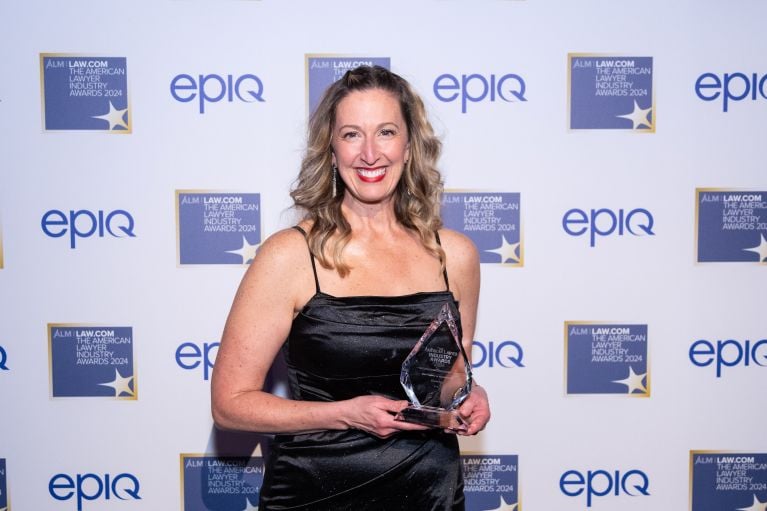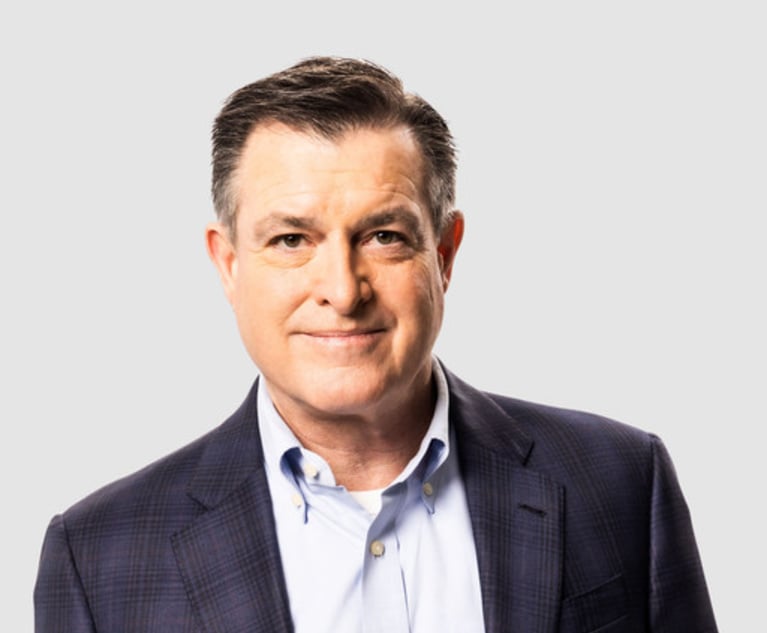Upper Big Branch Mine Disaster Could Lead to Criminal Charges
The case presents a striking example of one of the worst situations in-house counsel can face: potential criminal liability for a company and its executives in worker deaths.
May 31, 2010 at 08:00 PM
6 minute read
Online Exclusive: West Virginia State Prosecutor Speaks Out on Mine Disaster
The massive explosion that killed 29 workers at the Upper Big Branch coal mine in West Virginia was the deadliest mine disaster in the U.S. since 1970. The blast occurred 1,000 feet underground on April 5. Within days, allegations swirled that the tragedy was part of a pattern of lax safety practices by the mine's owner, Performance Coal Co., and the parent company, Massey Energy.
The Upper Big Branch Mine has had a long history of safety violations. In the year before the disaster the mine received eight substantial safety citations for dangerous methane buildups.
In the past five years, the mine was cited for a total of 1,342 safety violations, including 57 in the month before the blast alone.
Although Massey's controversial CEO, Don Blankenship, has categorized safety violations as “unfortunately a normal part of the mining process,” that type of track record could open the door to criminal prosecution.
“West Virginia certainly could, if the circumstances are right, bring a case for a negligent homicide,” says Jack Arseneault, a partner at Arseneault, Whipple, Fassett & Azzarello who frequently handles similar cases. “On a federal level, if there's a pattern of sacrificing worker safety for profitability, then it's not at all unusual for the Department of Justice to also bring a prosecution. And that's really the fundamental question in cases like this: Has the company as a matter of policy sacrificed worker safety for profits?”
A federal investigation is underway, with the FBI interviewing Massey employees. Although it may be months before the probe yields results, the case presents a striking example of one of the worst situations in-house counsel can face: potential criminal liability for a company and its executives in worker deaths.
Extreme Cases
“The cases that are prosecuted are typically pretty extreme–the owner or manager knows that employees are exposed to very hazardous substances or conditions, but simply didn't do anything at all to abate the hazard,” says Bruce Cross, a partner at Perkins Coie.
The Upper Big Branch disaster could fit that bill. Rescue workers described damage at the scene as unprecedented, and Massey's history of safety problems at the mine will no doubt work against it.
“The worse your record is, the easier it is for a prosecutor to show that you are negligent,” Cross says. “In a coal mine situation, if a particular manager knew there were dangerous levels of methane or coal dust accumulating and didn't take steps to get the employees out, that would be a pretty clear example of criminal negligence.”
Still, a state case would face an uphill battle. Kristen Keller, the West Virginia state prosecutor in Raleigh County, where the mine is located, says she would bring a criminal case if the investigation turns up facts that support it, but that the consequences of a federal prosecution would likely be harsher.
“The federal penalties for mine safety violations are felonies,” she says. “In West Virginia the penalty for negligent homicide is only a misdemeanor. So if there were a potential violation–again, all speculating–under state statutes we probably would defer to federal prosecution because the penalty would be more substantial.”
In addition to any fines or prison time individuals might face, the federal penalties for the corporation could be dire.
“Massive fines for the company itself, possibly debarment if they do any kind of government contracting work,” Arseneault says. “It literally could cripple a company.”
At Risk
Naturally, some industries are at far greater risk for worker deaths than others.
“The coal mining industry has to be up there because of the inherent risk involved to human life in the operation of the business,” Arseneault says.
At-risk companies can avert or mitigate federal prosecution by taking a proactive approach to safety problems. Self-reporting incidents, accepting responsibility and working to resolve workplace dangers all work in a corporation's favor.
“If I'm advising a general counsel, the first thing I say is, 'As quickly as we can, let's wrap our hands around the kinds of issues that we believe the Department of Justice or state law enforcement will be looking at,'” Arseneault says. “Time is very important. You have to get a team of people out and do a really thorough internal investigation. If you do uncover a pattern of putting profits above safety, document it and get to law enforcement immediately.”
At the very least, getting to the bottom of the matter before investigators and prosecutors do puts the company in a better position to defend its conduct.
“I don't mean to be trite about this, but information is power,” Arseneault says. “Quickly identifying any information that is critical to an inquiry allows you to better advise your board of directors on which way to proceed.”
Quick Decisions
General counsel must also brace themselves for the possibility that an internal investigation will reveal that executives could be personally responsible for negligent homicide or liable for other charges. GCs then have to make quick decisions on how to proceed and to what extent the company will participate in individuals' defense.
In any case, individuals must be clearly counseled that the legal department represents only the corporate entity.
“You have to be very careful with people who you think may become targets of the investigation,” Arseneault says. “Identify who they are and get them independent counsel so they can protect themselves and so there won't be claims later of breach of privilege. There are a lot of tricky issues going down this path.”
Some companies may opt for a joint defense, indemnifying and standing behind employees and executives in a firm assertion that there was no wrongdoing. The risk there is that if one defendant flips, the whole defense strategy may crumble.
Until investigations conclude, any criminal liability for Massey Energy will remain a matter of speculation, but civil cases were launched within days of the disaster. In addition to whatever prosecutions may come, Massey will have to contend with several shareholder lawsuits (see “Massey Shareholder Suits”). Despite offering victims' families multimillion-dollar settlements, the company may have to contend with wrongful death claims as well.
“Right now in West Virginia everyone is just grieving. Families are just beginning the recovery process now, so locally the focus is much more on that,” Keller says. “Although I will say, lawyers' ads appeared immediately in the paper.”
This content has been archived. It is available through our partners, LexisNexis® and Bloomberg Law.
To view this content, please continue to their sites.
Not a Lexis Subscriber?
Subscribe Now
Not a Bloomberg Law Subscriber?
Subscribe Now
NOT FOR REPRINT
© 2024 ALM Global, LLC, All Rights Reserved. Request academic re-use from www.copyright.com. All other uses, submit a request to [email protected]. For more information visit Asset & Logo Licensing.
You Might Like
View All
Elaine Darr Brings Transformation and Value to DHL's Business

How Marsh McLennan's Small But Mighty Legal Innovation Team Builds Solutions That Bring Joy

Democratic State AGs Revel in Role as Last Line of Defense Against Trump Agenda
7 minute read
'You Can’t Do a First Draft of Common Sense': Microsoft GC Jon Palmer Talks AI, Litigation, and Leadership
Trending Stories
- 1Stars and Gripes: Merging Firms Need a ‘Superstar Culture’ for US Success
- 2Elaine Darr Brings Transformation and Value to DHL's Business
- 3How Marsh McLennan's Small But Mighty Legal Innovation Team Builds Solutions That Bring Joy
- 4When Police Destroy Property, Is It a 'Taking'? Maybe So, Say Sotomayor, Gorsuch
- 5New York Top Court Says Clickwrap Assent Binds Plaintiff's Personal-Injury Claim to Arbitration in Uber Case
Who Got The Work
Michael G. Bongiorno, Andrew Scott Dulberg and Elizabeth E. Driscoll from Wilmer Cutler Pickering Hale and Dorr have stepped in to represent Symbotic Inc., an A.I.-enabled technology platform that focuses on increasing supply chain efficiency, and other defendants in a pending shareholder derivative lawsuit. The case, filed Oct. 2 in Massachusetts District Court by the Brown Law Firm on behalf of Stephen Austen, accuses certain officers and directors of misleading investors in regard to Symbotic's potential for margin growth by failing to disclose that the company was not equipped to timely deploy its systems or manage expenses through project delays. The case, assigned to U.S. District Judge Nathaniel M. Gorton, is 1:24-cv-12522, Austen v. Cohen et al.
Who Got The Work
Edmund Polubinski and Marie Killmond of Davis Polk & Wardwell have entered appearances for data platform software development company MongoDB and other defendants in a pending shareholder derivative lawsuit. The action, filed Oct. 7 in New York Southern District Court by the Brown Law Firm, accuses the company's directors and/or officers of falsely expressing confidence in the company’s restructuring of its sales incentive plan and downplaying the severity of decreases in its upfront commitments. The case is 1:24-cv-07594, Roy v. Ittycheria et al.
Who Got The Work
Amy O. Bruchs and Kurt F. Ellison of Michael Best & Friedrich have entered appearances for Epic Systems Corp. in a pending employment discrimination lawsuit. The suit was filed Sept. 7 in Wisconsin Western District Court by Levine Eisberner LLC and Siri & Glimstad on behalf of a project manager who claims that he was wrongfully terminated after applying for a religious exemption to the defendant's COVID-19 vaccine mandate. The case, assigned to U.S. Magistrate Judge Anita Marie Boor, is 3:24-cv-00630, Secker, Nathan v. Epic Systems Corporation.
Who Got The Work
David X. Sullivan, Thomas J. Finn and Gregory A. Hall from McCarter & English have entered appearances for Sunrun Installation Services in a pending civil rights lawsuit. The complaint was filed Sept. 4 in Connecticut District Court by attorney Robert M. Berke on behalf of former employee George Edward Steins, who was arrested and charged with employing an unregistered home improvement salesperson. The complaint alleges that had Sunrun informed the Connecticut Department of Consumer Protection that the plaintiff's employment had ended in 2017 and that he no longer held Sunrun's home improvement contractor license, he would not have been hit with charges, which were dismissed in May 2024. The case, assigned to U.S. District Judge Jeffrey A. Meyer, is 3:24-cv-01423, Steins v. Sunrun, Inc. et al.
Who Got The Work
Greenberg Traurig shareholder Joshua L. Raskin has entered an appearance for boohoo.com UK Ltd. in a pending patent infringement lawsuit. The suit, filed Sept. 3 in Texas Eastern District Court by Rozier Hardt McDonough on behalf of Alto Dynamics, asserts five patents related to an online shopping platform. The case, assigned to U.S. District Judge Rodney Gilstrap, is 2:24-cv-00719, Alto Dynamics, LLC v. boohoo.com UK Limited.
Featured Firms
Law Offices of Gary Martin Hays & Associates, P.C.
(470) 294-1674
Law Offices of Mark E. Salomone
(857) 444-6468
Smith & Hassler
(713) 739-1250






